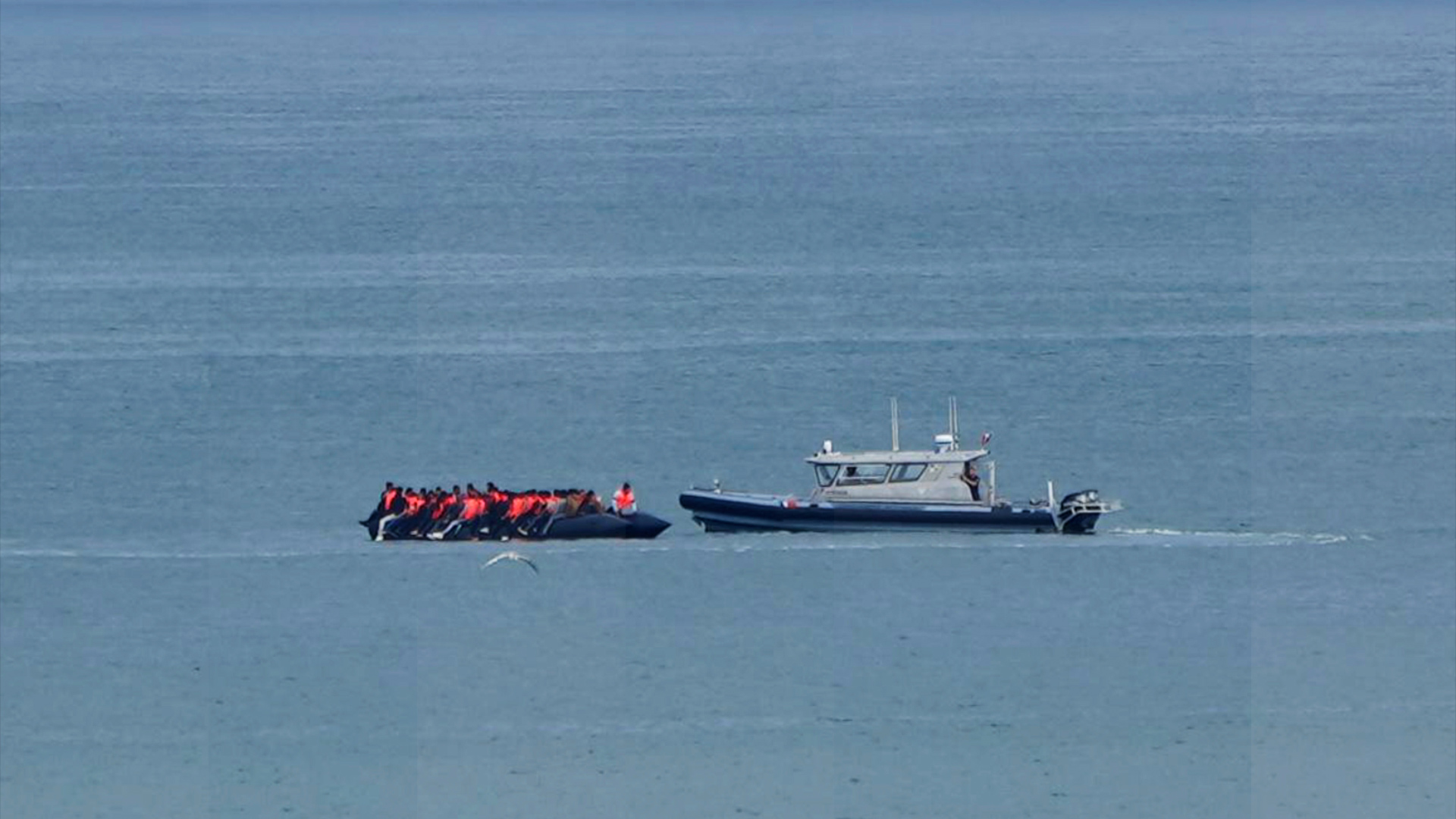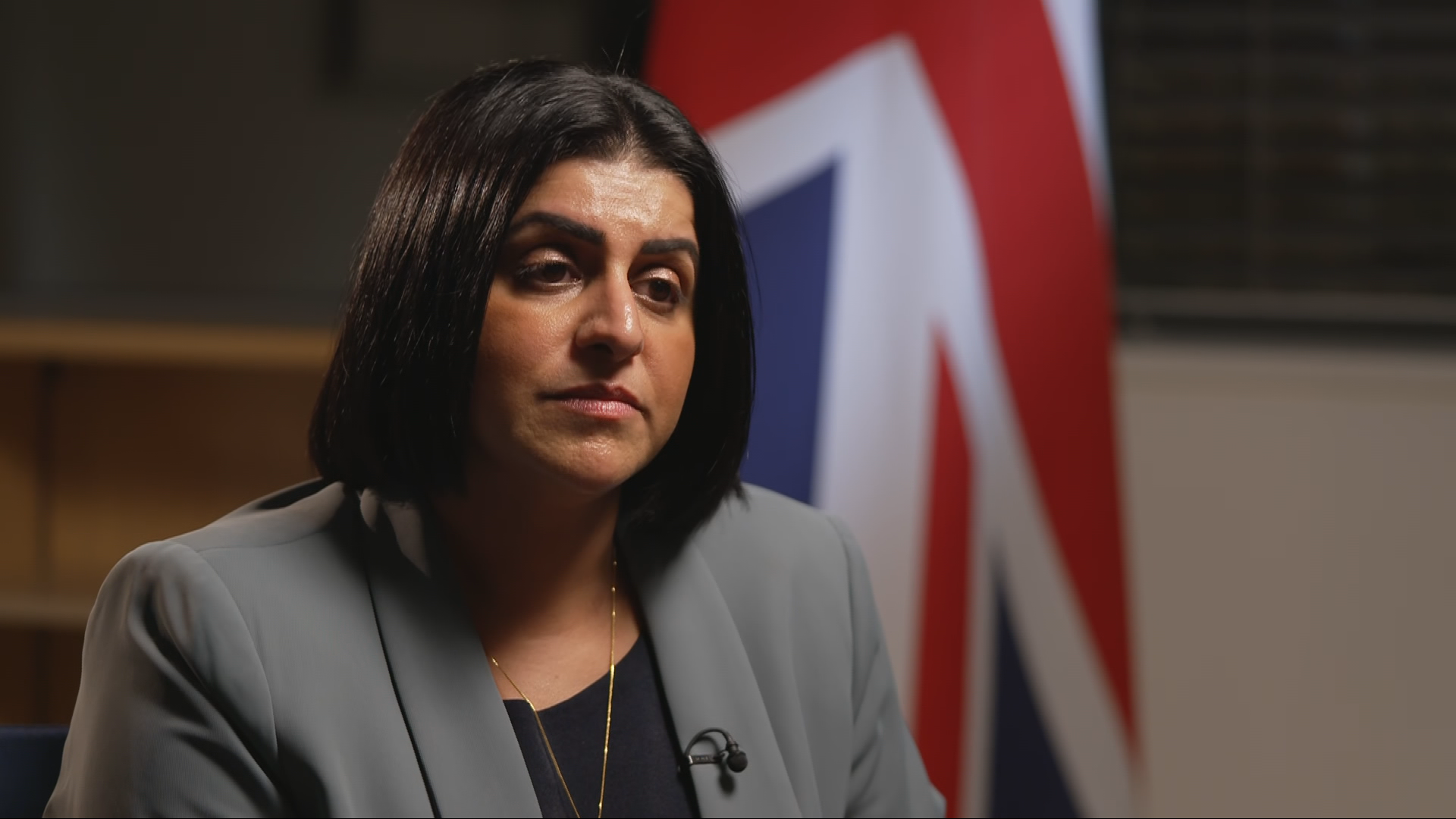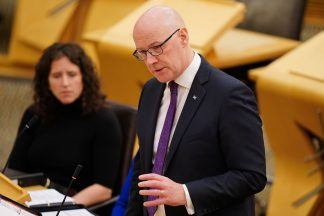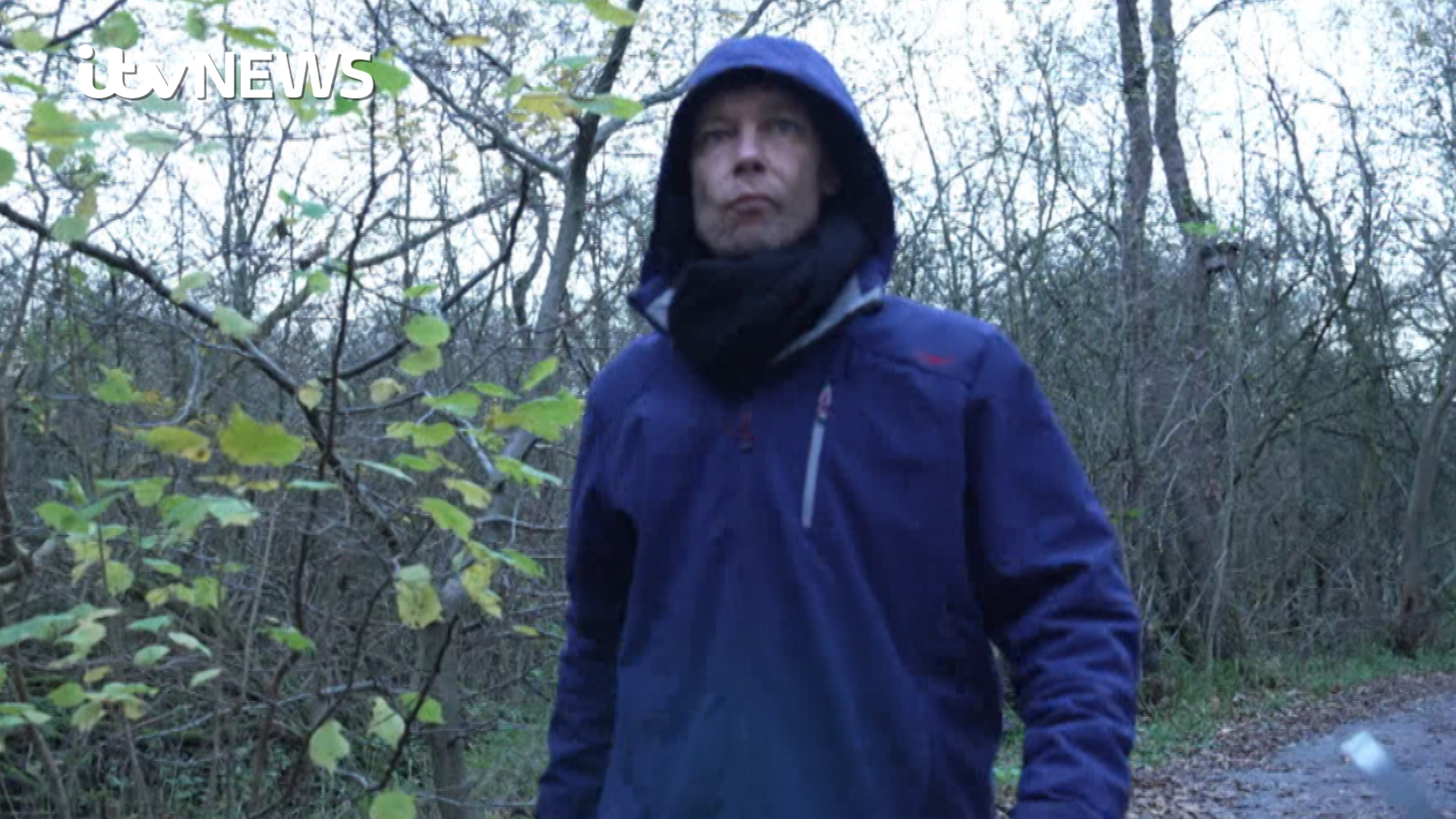The Government has announced radical reforms to the UK’s asylum system, launching a package of changes which they call the biggest in “modern history”.
Announcing the plans on Monday, the PM said the changes were required to cope with a more “volatile and insecure” world.
Starmer said there was now a “severe strain on both our asylum system and our wider social contract”.
The overhaul is set to make the UK’s immigration system one of the toughest in Europe, as the government takes inspiration from Denmark.
It comes amid the backdrop of Nigel Farage’s Reform UK dominating the polls, the increasing social unrest around the use of hotels to house asylum seekers and the small boats crisis.
The changes are aimed at reducing the “pull factors” that make people want to come to the UK, by making it harder to get permanent refugee status, reducing barriers to deportation and reforming human rights laws.
Starmer insisted “the UK is a decent, compassionate, tolerant country that celebrates diversity.”
Longer waits for UK citizenship
Under the current rules, if an asylum seeker’s claim is approved they then get refugee status for five years before they can apply for indefinite leave to remain (ILR).
A year after getting ILR, they can then apply for British citizenship.
But under the new plans, refugees will have to wait 20 years before they can get permanent settlement.
Rather than having five years of protection as a refugee, people will now face reassessments every two-and-a-half years, after which people could be sent back to their country of origin, if its deemed to be safe.
Benefits and housing
Under the new plans asylum seekers could also lose the automatic right to some benefits and housing help, with the legal duty to provide support revoked and instead made “discretionary”. The government say this will happen in the “coming months”.
The small proportion of asylum seekers who have a right to work will have their support removed, and those with assets will also lose automatic access to support, along with individuals who do not comply with the law.
The legal duty to provide support to asylum seekers was introduced in the UK in 2005 under EU law, it entitles asylum seekers to somewhere to live, and a weekly payment of £49.18, or £9.95 if the accommodation provides food.
The government will also consult on changes to the benefits system to prioritise access for people making “an economic contribution” to the UK.
Human rights laws
The government has been saying for some time that they want to reform the European Convention on Human Rights (ECHR), focusing on article 3 which provides protection from torture or inhumane treatment, and article 8 which guarantees the right to family life.
Mahmood will bring forward a bill to change how article 8 is applied in migration court cases, and also plans to change the law so that multiple attempts to appeal against rejected asylum claims will no longer be allowed.
There has been a significant rise in recent years of rights-based appeals as a means of avoiding deportation, including by some serious criminals.
Under the new rules, only those with immediate family in the UK will be able to use article 8 as grounds to stay.
A new independent body will also be set up to fast-track the removal of dangerous criminals, and late appeals will be expedited.
Claims by migrants about modern slavery in their countries of origin will also be more closely scrutinised, as the government says the application of article 3 has gone too far.
Legal routes
The government is also introducing new safe and legal routes to the UK, which will be capped and designed to give communities more of a say about refugees.
Local communities will be able to sponsor individual refugees, as part of a scheme modeled on the ‘Home for Ukraine’ scheme.
People who come through safe and legal routes will get a quicker path to permanent citizenship. The government is consulting on a ten-year route to settlement for those individuals.
Skilled refugees will be able to work in the UK through an expanded version of the 2021 ‘Displaced Talent Mobility Pilot’, which placed refugees in roles such as senior engineers, paralegals, and construction managers.
Writing in the Guardian on Monday, Mahmood said the routes “will be modest at first” and “grow in time”.
Visa sanctions
The government has announced it will bring in Trump-style visa sanctions for countries who fail to take back illegal migrants.
Initially, three African countries will be targeted – Angola, Namibia and the Democratic Republic of Congo – if they do not co-operate more on the removal of illegal migrants.
They’ll face visa sanctions, and their tourists, VIPs and business people could be blocked from travelling to Britain, under plans reportedly inspired by Trump.
Forced removals
The government wants more forced removals of asylum seekers whose claims have been rejected.
Mahmood is focusing particularly on removing families – the government argues some asylum seekers in the UK “exploit the fact that they have had children and put down roots in order to thwart removal”.
The government says its “hesitance around returning families” has created “perverse incentives” to put children on small boats.
Under the new plans, families will be offered financial support to encourage them to go home, but if they refuse they will be forced to return.
The government also says it is boosting returns by continuing the one-in-one-out pilot scheme with France, and resuming removals to countries that have become more stable or seem a regime change, like Syria.
In addition, the Home Office is exploring the use of “return hubs” in safe third countries where people could be sent if they can’t be returned to their country of origin.
‘High value’ items confiscated
The government says “we will not seize items of jewellery at the border”, despite reports that the overhaul could include plans to confiscate watches and jewellery in an idea borrowed from Denmark.
The Home Office insist family heirlooms and jewellery won’t be taken, but high value items like cars and e-scooters could be seized to contribute to the cost of accommodation.
The Liberal Democrats have called the plans “state-endorsed robbery.”
Hotels
The government has committed to ending the use of hotels to house asylum seekers by 2029, with an ambition to do so sooner than that.
They say the hotels can be a “pull factor” encouraging people to come to the UK, with smugglers using the “prospect of a paid-for hotel” to “lure asylum seekers into small boats”.
To replace the hotels, the government is moving towards the use of large sites, including former military sites, as asylum accommodation.
When will it happen?
Many of the reforms announced on Monday will require legislation, but the government says it cannot yet give a date for when they will come into force.
It says it wants to bring in the changes “as soon as possible”, but some aspects of the plan will take longer than others.
Pressed on whether it would be months or years, Home Office minister Alex Norris said “We’re not talking years.”
“This is a here and now package as well as things that are coming for the future,” he said, highlighting the increased number of deportations happening already under the Labour government.
Will Labour MPs vote for it?
The plans have already sparked opposition from backbench MPs, with 16 coming out against the plans so far.
Kent MP and former immigration lawyer Tony Vaughan said ministers’ rhetoric “encourages the same culture of divisiveness that sees racism and abuse growing in our communities”.
MPs on the left of the Labour Party also criticised the plans, Richard Burgon called them “a desperate attempt to outdo Reform, and Kim Johnson said the plans create “a racist narrative and division taken from the far right playbook.”
But minister Alex Norris urged backbenchers to look “closely” at the policy when it’s announced in the Commons.
What do opposition parties and charities say?
The Conservatives welcomed some of the measures, but warn that “some are just yet more gimmicks”.
The party has offered to support the government to get the changes through, especially if it races a rebellion from Labour backbenchers.
Reform UK leader Nigel Farage told the Daily Mail that Mahmood “sounds like a Reform supporter”.
Enver Solomon, chief executive at the Refugee Council, meanwhile described the government’s plans as “harsh and unnecessary”, and claimed they “won’t deter people who have been persecuted, tortured or seen family members killed in brutal wars”.
He added: “Instead, they are more likely to force them into destitution and sleeping rough on the streets.”
Follow STV News on WhatsApp
Scan the QR code on your mobile device for all the latest news from around the country





























